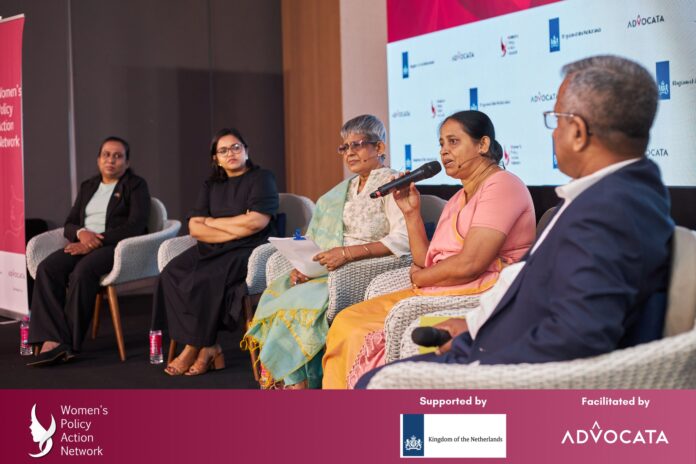[ad_1]
ECONOMYNEXT — Research by free market think tank Advocata has found that persistent disparities in financial and digital literacy are major hindrances to women achieving financial independence in Sri Lanka, a country whose female labour force participation is half of that of men.
The study has found that, despite a commendable literacy rate, disparities in financial and digital literacy hinders access to financial services.
The Advocata Institute said in a statement on the study that Sri Lanka has been struggling with inadequate digital infrastructure and a regulatory environment where vulnerable populations, notably women, face exploitation and marginalisation which contributed to restricting women’s access to finance. Other barriers, which include the lack of digital and financial literacy, drove consumers, especially women, towards informal financial services.
These challenges were highlighted in the study which was funded by the Women’s Policy Action Network (WPAN), supported by the Kingdom of the Netherlands. Findings of the study were discussed at a panel discussion titled “Closing the Divide Through Women’s Access to Financial Inclusion” last week.
According to the WPAN, among the most pressing issues that restrict women from participating in the labor force are unpaid care work and lack of legislation around night time and part time work for women.
Advocata said in its statement that the event had representatives from civil society organisations, policymakers, and women leaders who generated strong advocacy conversations on behalf of women.
WPAN Chair Roshan Perera who also spoke at the event highlighted the high cost of digital access and its limitations on access to finances. Around 60 percent of the population is affected by mobile data affordability, and Sri Lanka is still heavily dependent on cash for online transactions, she said.
“Women’s access to financial services, especially digital financial services could hold the key to greater engagement of women in economic activity and help reduce gender gaps,” said Perera, who had led the research.
Advocata Chair Murtaza Jafferje speaking at the event expressed the need to increase women’s participation in the economy to propel GDP (Gross Domestic Product). Sri Lankan women compared to East Asian peers are underrepresented in the workforce which is a major hindrance for economic growth, he said.
“Women are more than 50 percent of the population, but of you look at the labour participation of the economically active population, which is about 16 million people, the male participation is 70 percent, the female participation is 35 percent. In countries like Vietnam, which has one of the highest [rates of] female labour participation, which is as high as 80 percent and almost equivalent to male. In most East Asian countries it’s about 70 percent,” said Jafferjee.
Access to finance empowers women to be entrepreneurial activities which is a key factor for economic growth, he said, noting that, ,however due to the lack of access to credit has forced women to not go beyond their traditional role in a household.
“One way of avoiding this predicament (low growth) is to have more women participation in the labour force. and women have certain constraints so all of them are not necessarily able to work in formal workplaces and many of them will have to be in informal employment including working for themselves or starting new businesses,” he said. (Colombo/Mar27/2024)
[ad_2]
Source link


